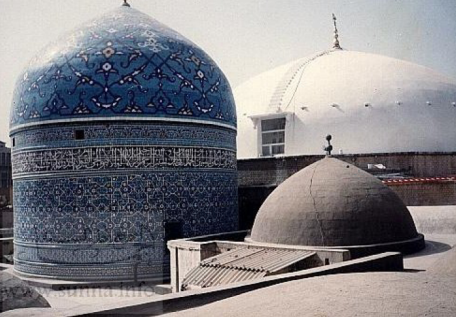Category Archives: Healing & Counseling
Rajab: What to Read on the 27th Day
 “Whenever the twenty-seventh of Rajab came around, Abdullah ibn Abbas radi Allahu anhuma would start the day as a mu’takif [i.e. someone who follows the practice called i’tikaf, meaning withdrawal into a state of seclusion in order to concentrate on religious devotions, especially while fasting]. He would devote the whole morning to prayer, upto and including the obligatory ritual prayer at noon [Dhuhr]. After performing the noon prayer, he would stroll about for a little while to stretch his legs, then he would perform an extra salat-prayer consisting of four cycles. In each cycle [rak’a], he would recite Surah Al-Fatiha one time only, then Surah Al-Falaq & Surah An-Naas [Al-Mu’awwidhataan], also one time only, then Surah Al-Qadr [#97] three times, and then Surah Al-Ikhlaas fifty times. He would then devote himself to continuous supplication [du’a], until it was time to perform the obligatory late-afternoon ritual prayer (‘Asr). ‘This,’ he used to say, ‘is exactly what Allah’s Messenger sallallaahu alayhi wa sallam always did on this particular day.'”
May Allah Ta’ala accept our ibaadaat bi Waseelatil Habeeb sal Allahu alayhi wa Aalihi wa sallam. Aameen.
Rajab: Recommended Prayers and Fasting
Related in the Ghunya of Shaykh Abdul Qadir al-Jilani (rehmatullahi alyhe):
The Holy Prophet Muhammad (peace and blessings upon him) said that whoever fasts on the first Thursday of Rajab and then prays the following prayer between Maghrib and Isha, i.e on the eve of Friday:
- 12 cycles in sets of two reciting Surah Al-Qadr (i.e. Inna anzalnahu fi laylatil Qadr) three times and Surah Al-Ikhlas (i.e. Qul huwa Allahu ahad) 12 times, and recites Darood Shareef (Allahumma salli ‘ala Muhammadinin-Nabiyyi l-Ummiyyi wa ‘ala aalihi wa sallim) 70 times at the end of the 12 cycles and then recites some special prayers (found in the Ghunya),
Allah Almighty forgives all his or her sins even if they are like the foam on the ocean, the grains of desert sand, the weight of the mountains, the drops of rain, or the leaves of trees. In addition, intercession is accepted from 700 members of this person’s family on the Day of Judgment. This prayer will come in the form of a person to the deceased when he or she is in the grave and congratulate them saying that they have been granted freedom from every hardship [in the Hereafter]. The deceased person will ask who this person is mentioning that he or she has not seen a person more handsome, nor heard a voice more sweet nor smelt a person more fragranced. Upon this the person will respond that he is this [Rajab] prayer that the person had done and had come to take care of his or her needs and be his or her companion in their loneliness and time of anxiety [in the Barzakh]. Furthermore when the trumpet is blown, this prayer will be a shade on the deceased in the Plain of Hashr and good news to the performer of this prayer that Allah Almighty does not overlook any good deed.
For more prayer and fasting recommendations during the Sacred Month of Rajab, click the link below:
https://www.iecrcna.org/publications/articles/Rajab.pdf
RAJAB LIVE BROADCAST EVENT: Saturday June 19th between 3pm and 6pm PSTÂ
In addition to the prayers above, join me at the Annual Commemoration (Urs) of Khwaja Muinuddin Chishti (ra) that will be held via live broadcast at the IECRC – Sacramento Center. This is a means for great spiritual benefit (barakaat). You may join online via live broadcast. Details in the link below:










